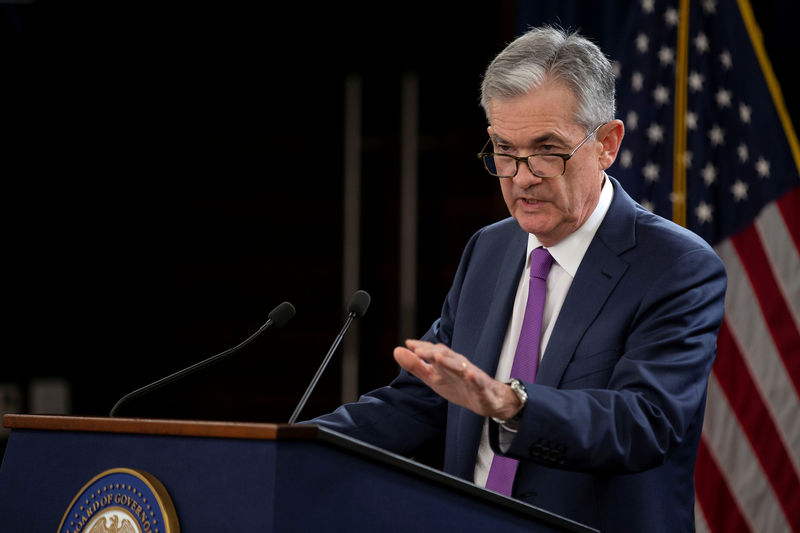By Howard Schneider
DALLAS (Reuters) - A "really strong" U.S. economy is likely to continue growing, but softness in housing and high levels of corporate debt have caught the Federal Reserve's eye, Chairman Jerome Powell said on Wednesday.
Powell, quizzed by Dallas Federal Reserve President Robert Kaplan in an hour-long conversation, was not asked directly about possible further rate increases, but said nothing to counter the expectation that the Fed will raise rates again when it meets in December.
However he did enumerate a set of concerns that have begun to arise among Fed officials as they debate how much further and how fast to raise their short-term policy rate, a benchmark for other borrowing costs in the economy.
"Slowing growth abroad. The tax cuts and spending increases that were enacted are providing some real boost right now, but that impetus is going to wear off over time," Powell said when asked to list the "headwinds" the economy may face in coming months.
Earlier in the session he pointed to recent weakness in housing as a concern. And while he said he regarded financial risks overall as "pretty moderate," with neither banks nor households heavily leveraged, he said corporate borrowing had caught the Fed's attention.
"There are a lot of factors weighing on home building right now. Material costs, labor scarcity ... It is rates as well," with the costs of home mortgages rising, Powell said. While leverage and other credit indicators are healthy overall, "there is some significant corporate borrowing and we have our eyes on that."
The Fed raised rates at its September meeting, and Powell at the time mapped out an optimistic view of unemployment likely to continue at record low levels, growth continuing, and inflation near the central bank's 2 percent target.
His commentary following that meeting was exuberant, saying in an early October public session that the economy was "extraordinary."
Over the weeks that followed equity markets were pummeled in a sharp sell-off that renewed this week, the latest figures on gross domestic showed a slowing in business investment, and global data showed world growth possibly beginning to ebb.
That did not alter the Fed's outlook much, and policymakers at their meeting last week said economic growth continued "at a strong rate."
However in recent weeks policymakers have also acknowledged that this year could mark a plateau of sorts, with the Fed forced next year to balance the impact of ultra-low unemployment on inflation, while also dealing with a possible slowdown in growth.
Like many of his colleagues, Powell hinted that the boost that the economy has gotten from various federal policies could soon begin to wane.

"That impetus is going to wear off over time," Powell said. "That could be happening in the next year or so."